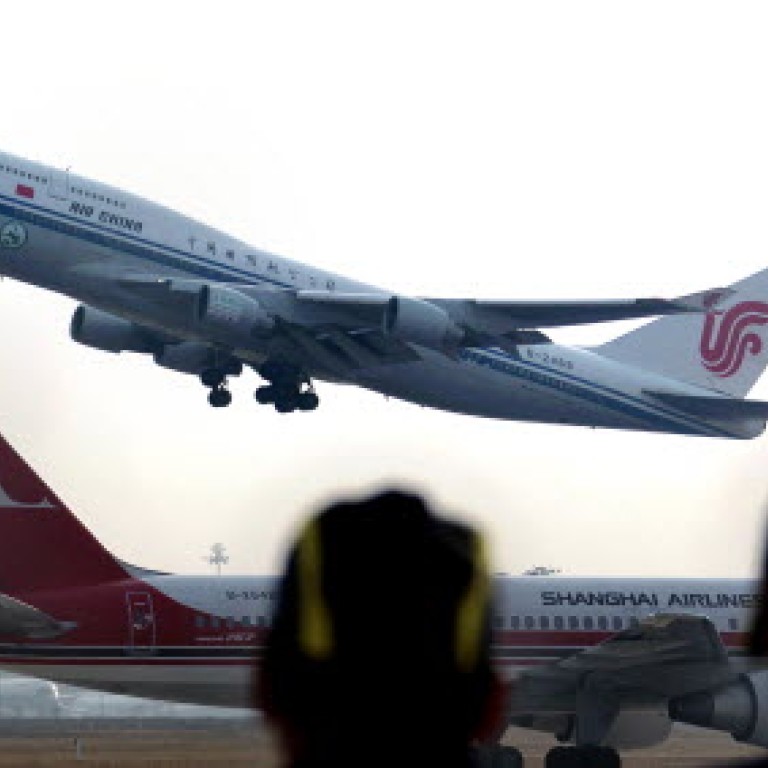
Broadband browsing at 32,000 feet: Air China introduces new fast internet service
The system allows internet access at a promised speed of 20-30 megabytes per second
Air China has upgraded its in-flight wi-fi system to allow travellers to surf the net with broadband speed at 32,000 feet.
The Beijing-based airline launched its first in-flight wireless system in 2011, enabling passengers to access a local area network on flights. In July 2013, the company kicked off a trial of an upgraded system that strengthened the connection to the Internet.
Despite these efforts, passengers have long been complaining about the stability of the wireless system. Even if devices were lucky enough to detect wireless signals, nine times out of ten connections could not be smoothly made.
Air China's new and improved system, which was tested on flights from Beijing to Chengdu this Wednesday, appears to have fixed many of these connection issues, according to customers who tested it.
Browsing while in flight was a similar experience to surfing at home, a director on board a flight from Beijing to Chengdu posted in his Sina Weibo account on Wednesday afternoon.
Xiao Yang, a mainland microfilm director and actor, uploaded a video of him singing the theme song of one of his most watched microfilms Old Boys, during the flight.
Xiao was one of the passengers invited by Air China to test a new system which allows web surfing at a promised speed of 20-30 megabytes per second. Approximately one third of this data is used to support live TV streaming, such as China Central Television internet broadcasts.
“The old system used maritime satellites to connect the Internet. It is costly, unstable, and slow,” Zhang Yun, the director of the airlines’ on-board network office said.
In contrast, the upgraded system tested on Wednesday used 18 China Mobile base stations on the ground to transmit 4G signals to aircraft equipped with wi-fi servers.
“You could only check stock prices and send emails using the old system. But now you can watch video online,” Zhang said of the improved system.
The on-board wireless system will be ready for deployment on all domestic Air China flights in two years, Zhang said, adding it was too early to say whether or not the airline would charge for the service.
But Zhang's ambition faces a major obstacle. All smart phones, including those in flight mode, are prohibited from being switched on during flights under China’s civil aviation regulations - meaning that passengers will only be able to browse the internet and post in-flight selfies using devices such as tablets or laptops.
“We are working closely with the government. But currently we do not have a schedule regarding when the official directives will be issued," Zhang said.
Passengers taking international flights will have to wait longer for wi-fi. Without the support of a base station on the ground, connecting to satellites remains the single option for aircraft flying across the ocean.
